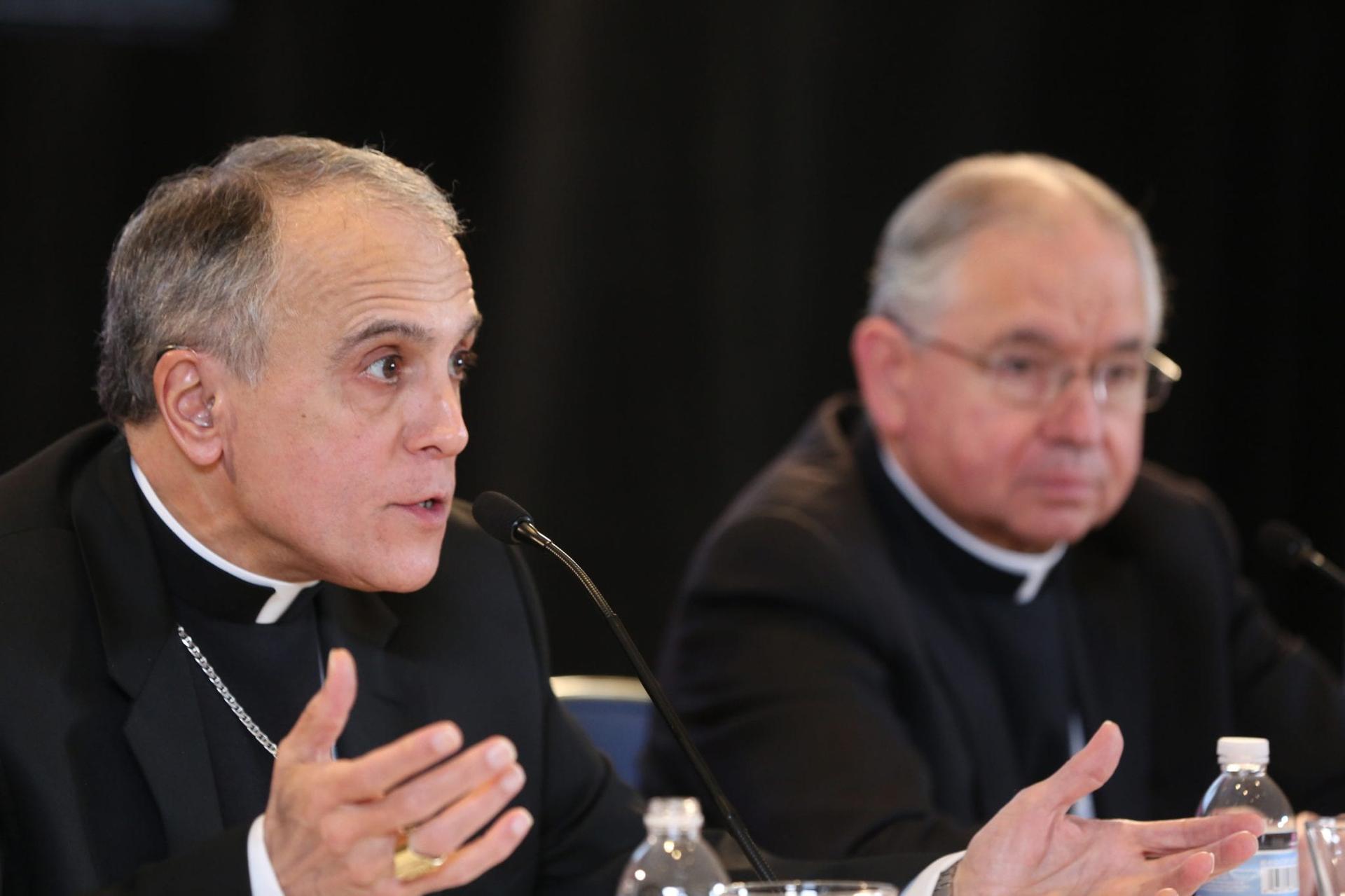NEW YORK – When the nation’s Catholic bishops gather in Baltimore next week for their annual fall meeting of the United States Conference of Catholic Bishops (USCCB), they’ll attempt to set an agenda in reaction to two of the world’s most closely-watched and consequential figures: Pope Francis and U.S. President Donald Trump.
While the priorities of the pontiff will be instrumental in shaping their focus, it will likely be the actions of the president that yield the most immediate responses. Since Trump was elected in November 2016, the conference has issued nearly 100 more statements than the previous year —a clear indication of their current public level of engagement, in a time when a great deal seems to be at stake in terms of America’s direction.
RELATED: One year after the election of Trump, the U.S. bishops shift focus
This year’s meeting will kickoff on Sunday, with a Mass at Baltimore’s Basilica of the National Shrine of the Assumption of the Blessed Virgin Mary marking the 100th anniversary of the assembly. The Vatican’s Secretary of State, Cardinal Pietro Parolin, will be on hand to celebrate the Mass, a sure sign of the significance of the U.S. Church in the eyes of the Holy See.
The bishops will be in open sessions Monday and Tuesday, and behind closed doors for Wednesday’s meeting.
Also on the agenda is Cardinal Daniel DiNardo’s first address as President of the USCCB. DiNardo was elected at last year’s meeting, along with Archbishop José Gomez who was elected the conference’s vice-president.
DiNardo, as archbishop of Galveston-Houston will almost certainly recount personal stories of the experience of Hurricane Harvey and the Church’s response in the rebuilding efforts of his home diocese.
The bishops will hear from their working group on immigration, established shortly after last year’s meeting in the light of Trump’s election. Gomez, who is Mexican born, has become one of the Church’s most vocal champions for comprehensive immigration reform and has used his national platform regularly to promote the cause, most recently during his homily at the annual Red Mass in Washington, D.C. this past September.
RELATED: America’s immigrant history refreshed for SCOTUS justices at Red Mass
The bishops will elect new chairmen for six committees: Communications, Cultural Diversity in the Church, National Collections, Pro-Life Activities, Committee on Doctrine, and Religious Liberty.
Among the most closely watched elections will be the head of the pro-life committee, in which Cardinal Blase Cupich of Chicago will be up against Archbishop Joseph Naumann of Kansas City. This election is widely viewed as a choice between a “consistent ethic of life” approach, associated both with the late Cardinal Joseph Bernardin of Chicago and Francis’s encyclical Laudato Si’, in contrast to a more traditional approach to pro-life issues, with a primary focus on abortion.
Cardinal Timothy Dolan of New York is the outgoing head of the pro-life committee and, given its significance within the conference, it’s traditionally been headed by a cardinal. Many observers no doubt will see the contest between Cupich and Naumann as an indirect referendum on the broader direction of the conference.
Also on the agenda will be a report from a new ad-hoc committee on racism, which was formed this past August following the racially motivated events of Charlottesville, Virginia. The committee is chaired by Bishop George V. Murry, SJ of Youngstown, Ohio, and anticipates releasing a new pastoral letter on racism in 2018.
Bishop Robert Gruss of Rapid City, South Dakota will also speak on the cause for canonization for Nicholas Black Elk, Sr., a Sioux medicine man turned Catholic teacher who died in 1950. The conference will then vote on whether to pursue his cause for canonization.
Reports are also expected from Bishop Frank Dewane, head of the Committee on Domestic Justice and Human Development, who has been an active voice on social justice issues over the past year, Sean Callahan, President and CEO of Catholic Relief Services, and Sister Donna Markham, President and CEO of Catholic Charities USA (CCUSA).
The pope’s ambassador to the United States, Christophe Pierre, will also address the conference. Pierre, whose formal title is Apostolic Nuncio, will likely remind the bishops of Francis’s priorities for the global Church, but also his preference for synodality — a key theme in Francis’s pontificate that focuses on listening to people’s concerns and making decisions on a local level.
Last week, the nuncio gave a major lecture at the Catholic University of America, following a week of drama within the U.S. Church following the resignation of Father Thomas Weinandy, an advisor to the bishops’ committee on doctrine who had criticized the pope for causing “chronic confusion” within the Church. Following the resignation, DiNardo issued a statement in which he reaffirmed the bishops’ loyalty to Francis.
RELATED: Apostolic Nuncio to the U.S.: “Unity Prevails over Conflict
Pierre used his remarks to remind the faithful that “unity prevails over conflict.” As the bishops gather in person this coming week, that stress on unity in a time of growing division in America is sure to loom both over the nuncio’s address and the meeting as a whole.
Stay tuned for Crux’s latest news and updates from the USCCB fall assembly, where Crux’s national correspondent Christopher White will be providing regular updates. Follow him on Twitter @CWWhite212 and visit Crux for daily updates and interviews from Baltimore.















